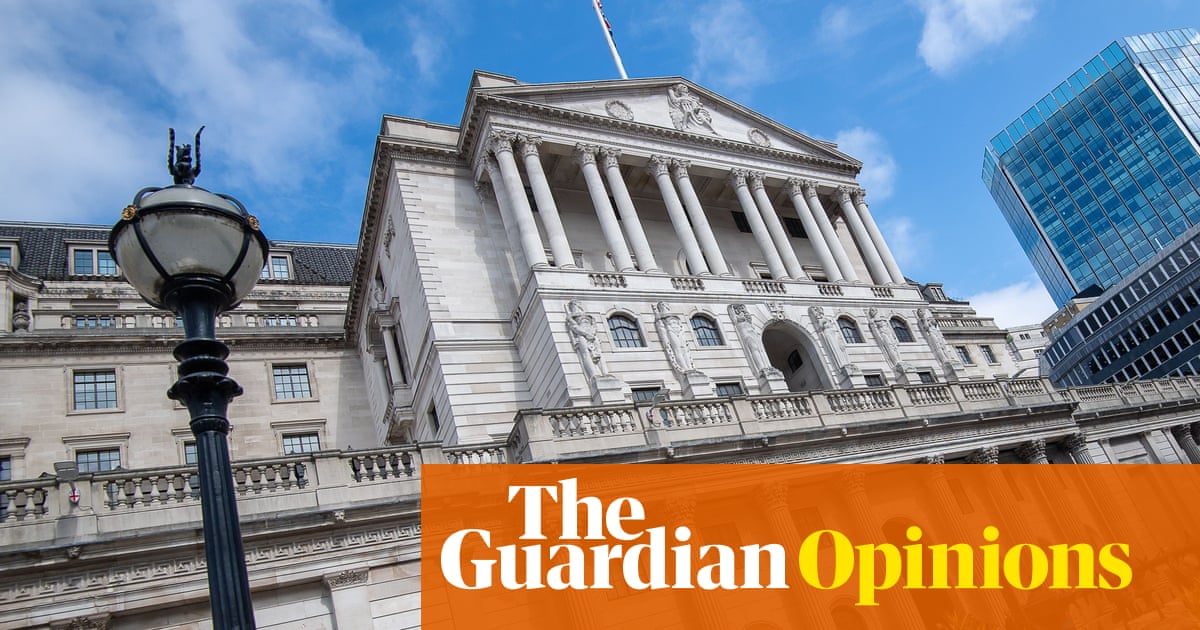Assume that Rip Van Winkle had gone to sleep on the eve of the US election on 4 November 2024 and had woken up on 1 September 2025 and was told that, in the US, developments included:
a) Donald Trump had been talking of firing Jerome Powell, the chair of the Federal Reserve, and asserting that only those who believed that short-term interest rates needed to be a lot lower were qualified to be the next Fed chair. Moreover, he had attempted to take the unprecedented step of firing a board governor.
b) The new US budget had been seen by the Congressional Budget Office as adding $3.4tn (£2.5tn) to the national debt over the next 10 years.
By contrast, in the UK:
a) The government had worked hard to stay within its fiscal rules and had made no attempt to interfere with the independence of the Bank of England.
b) In terms of the outlook for monetary policy, two-year yields in the UK and US had come down by about the same amount.
Under these circumstances, it would be reasonable for Van Winkle to expect that US yields would have risen by more than in the UK. Hence, his astonishment when told that UK 30-year yields had risen by more than in the US.
In talking to investors, I encounter strongly divergent views regarding Van Winkle’s puzzle. One group believes that this represents an anomaly and, given a catalyst, UK gilts (bonds) should outperform US treasuries. By contrast, some others believe that the UK gilts market is heading towards a full-blown crisis because of fiscal sustainability concerns. This camp points to the historical tendency of the Office for Budget Responsibility to be too optimistic with regard to its fiscal projections. They also worry that the OBR’s growth projections are too high. They point out that the OBR did not believe that the October 2024 budget would boost growth over a five-year period and are worried that recent tax changes have driven entrepreneurs away and changed the image of the UK as a place to invest.
It is important to recall that market pricing is often dominated by the prevailing narrative. At the moment, the bond vigilantes are also circling in France. It is therefore time for the UK government to be bold and to change the image of the UK. This requires highly significant and eye-catching measures. Tinkering will not do.
First, the autumn budget needs to be seen to be credible in terms of the fiscal projections. This will necessarily require some tough decisions.
Second, the budget should raise revenue without hurting growth. The achilles heel of the 2024 budget was the rise in employer national insurance contributions, which was seen as hurting employment. It is therefore time to be bold and the government should engage in significant tax reform. By way of example, the introduction of a tax on land could raise revenue and actually increase growth if taxes on work could thereby be reduced over time.
Recall that the quantity of land does not react negatively to a tax on its return while labour supply and capital investment do. Continuing to raise taxes in ways that hurt growth might intensify fears that the current government is caught in a “doom loop” whereby each budget needs to raise taxes further because prior taxes hurt work or investment. I am therefore encouraged by recent speculation that the government is looking afresh at property taxes.
Third, policies that are widely seen as increasing growth would help. These policies need to have a significant wow factor. An example would be joining the customs union.
skip past newsletter promotion
Sign up to Business Today
Get set for the working day – we’ll point you to all the business news and analysis you need every morning
Privacy Notice: Newsletters may contain info about charities, online ads, and content funded by outside parties. For more information see our Privacy Policy. We use Google reCaptcha to protect our website and the Google Privacy Policy and Terms of Service apply.
after newsletter promotion
Fourth, the UK needs to emphasise to markets that the Bank of England is more independent than the Federal Reserve. One way of doing so would be to allow the Bank to set its own inflation target.
Fifth, I argued a couple of years ago that inflation expectations in the UK were running higher than the inflation target. I said then that this would make the Bank of England slower to cut rates when, as now, the labour market was weakening. At the time, I resurrected an idea originally proposed by many distinguished economists – a tax on companies that give their staff inflation-busting pay deals. I continue to believe that such a tax would be rewarded by the gilts market and would allow the Bank to cut rates sooner.
Sixth, the Bank needs to play its part here. It needs to make it known that it takes unwarranted moves in gilt yields into account in its monetary policy decisions and would therefore respond to, for example, contagion from the US. It also needs to reconsider its policy relating to quantitative tightening.
To conclude, the government has an opportunity to increase growth and reduce its debt interest bill at the next budget. Boldness will be rewarded by markets now and, very likely, the electorate eventually.
Sushil Wadhwani is an economist and a former member of the Bank of England’s monetary policy committee

